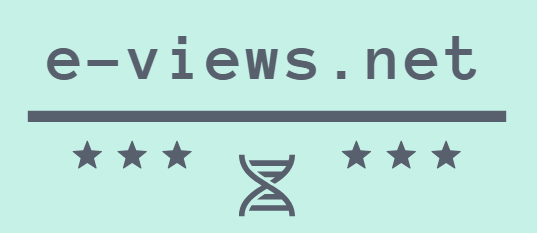When you're looking to boost your site's SEO rankings without breaking the bank, there are a few key strategies you should consider. Start by optimizing your on-page elements like title tags and meta descriptions, which can significantly enhance click-through rates. Don't overlook the power of quality content that addresses user intent, updated regularly to stay relevant. Social media isn't just for engagement; it's a vital tool for content sharing. Building high-quality backlinks and focusing on local SEO tactics can also make a huge difference. But how do these strategies fit into your overall plan? Let's explore further.
Optimize On-Page Elements
One of the most effective ways to boost your SEO rankings is by optimizing on-page elements. Start with title tags and meta descriptions, ensuring they include relevant keywords. According to Moz, using keywords strategically in these areas can increase click-through rates by up to 20%. Don't forget to make them compelling—search engines reward higher engagement.
Next, focus on header tags (H1, H2, H3) to structure your content. Use primary keywords in your H1 tag and secondary ones in H2 and H3 tags. Google's algorithm values organized content, so this can improve your visibility. Aim for a keyword density of 1-2% throughout your content to avoid keyword stuffing but still signal relevance.
Image optimization is another crucial element. Compress images for faster loading times and use alt text with keywords to help search engines understand the image content. According to a Google study, websites with optimized images load 30% faster, directly impacting user experience and search rankings.
Lastly, internal linking helps search engines crawl your site more effectively. Link to relevant pages to keep users engaged longer, reducing bounce rates by up to 40%, which can positively influence your SEO rankings.
Focus on Quality Content
After optimizing on-page elements, the next step to elevate your SEO game is to focus on producing high-quality content. Search engines prioritize content that's relevant, authoritative, and engaging. By ensuring your content meets these standards, you can significantly improve your rankings. Start by conducting thorough keyword research to identify terms that your target audience frequently searches for. Integrate these keywords naturally into your content to increase visibility and relevance.
To help you understand the relationship between content quality and SEO, consider the following table:
| Content Element | Impact on SEO | Optimization Tip |
|---|---|---|
| Relevance | High | Align content with user intent |
| Authority | Moderate | Use credible sources and cite them |
| Engagement | High | Write compelling headlines and intros |
| Keyword Density | Moderate | Maintain 1-2% keyword density |
Effective content also involves providing value. Answer common questions, solve problems, and offer insights that your audience finds useful. This approach not only boosts your SEO rankings but also establishes trust and credibility with your readers. Regularly update your content to reflect the latest information and trends, keeping it fresh and current. This strategy ensures that your content remains relevant and continues to attract traffic over time.
Leverage Social Media

Social media platforms are powerful tools for boosting your SEO rankings. By strategically leveraging these channels, you can drive significant traffic to your site. When you share content on social media, search engines notice the increased traffic, which can positively impact your rankings.
Research indicates that pages with high social engagement tend to rank better, making social media an essential part of your SEO strategy.
To optimize your social media efforts, consider the following:
- Engage with Your Audience: Actively respond to comments and messages. Engagement increases visibility and encourages sharing, promoting organic reach.
- Use Relevant Keywords: Incorporate keywords into your social media posts. This helps in search engine indexing and improves the likelihood of appearing in search results.
- Consistent Posting Schedule: Maintain a regular posting schedule to keep your audience engaged and to signal to search engines that your content is current and relevant.
Additionally, connecting with your audience on platforms like Facebook, Twitter, and Instagram can enhance brand awareness. This increased visibility can indirectly boost your website's authority in search engines.
Build High-Quality Backlinks
While social media engagement plays a significant role in enhancing your SEO strategy, building high-quality backlinks is another powerful tactic to improve your site's rankings. Backlinks act like votes of confidence from other websites, signaling to search engines that your content is authoritative and valuable. Studies show that sites with a strong backlink profile are 3.8 times more likely to rank higher on Google.
To optimize your backlink strategy, focus on acquiring links from reputable and relevant sources. Quality trumps quantity, so a few high-authority links can outperform dozens of low-quality ones.
Start by creating shareable content that naturally attracts links. Infographics, comprehensive guides, and original research are formats known to generate organic backlinks. Outreach is key—reach out to industry influencers and bloggers who might find your content beneficial to their audience.
Guest posting on reputable sites within your niche is another effective way to secure quality backlinks. Tools like Ahrefs or SEMrush can help you analyze competitors' backlink profiles, offering insights into potential link sources.
Utilize Local SEO Tactics

To boost your site's visibility in local searches, leveraging local SEO tactics is essential. Local SEO ensures your business appears in search results for nearby users, directly impacting foot traffic and sales.
Start by optimizing your Google My Business (GMB) listing. According to Moz, GMB signals account for 25% of ranking factors in local searches. Verify your business, and ensure your NAP (Name, Address, Phone number) is accurate and consistent across all platforms. Additionally, add high-quality images and encourage reviews to increase engagement.
Next, focus on local keyword optimization. Use tools like Google Keyword Planner to identify region-specific keywords with high search volume. Incorporate these keywords naturally into your website's content, meta descriptions, and headers to boost relevance in local queries.
Engage your community through localized content. Create blog posts or videos addressing local events, news, or topics that concern your audience. This not only boosts your SEO but also builds a connection with potential customers.
Consider these tactics for local SEO success:
- Optimize and verify your Google My Business listing.
- Use local keywords in your website content.
- Create localized content that resonates with your community.


Leave a Reply